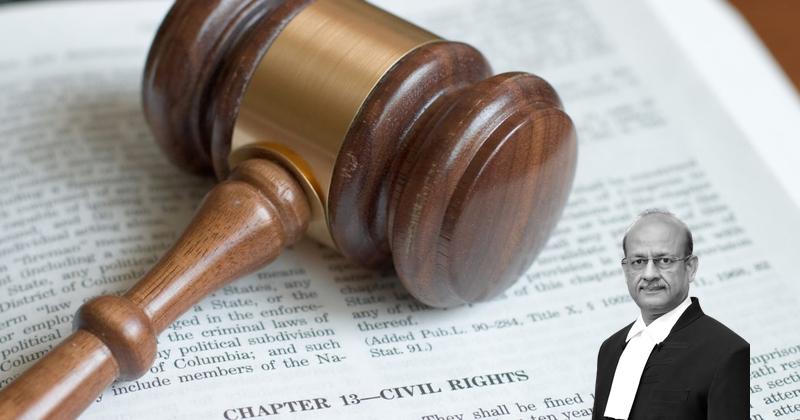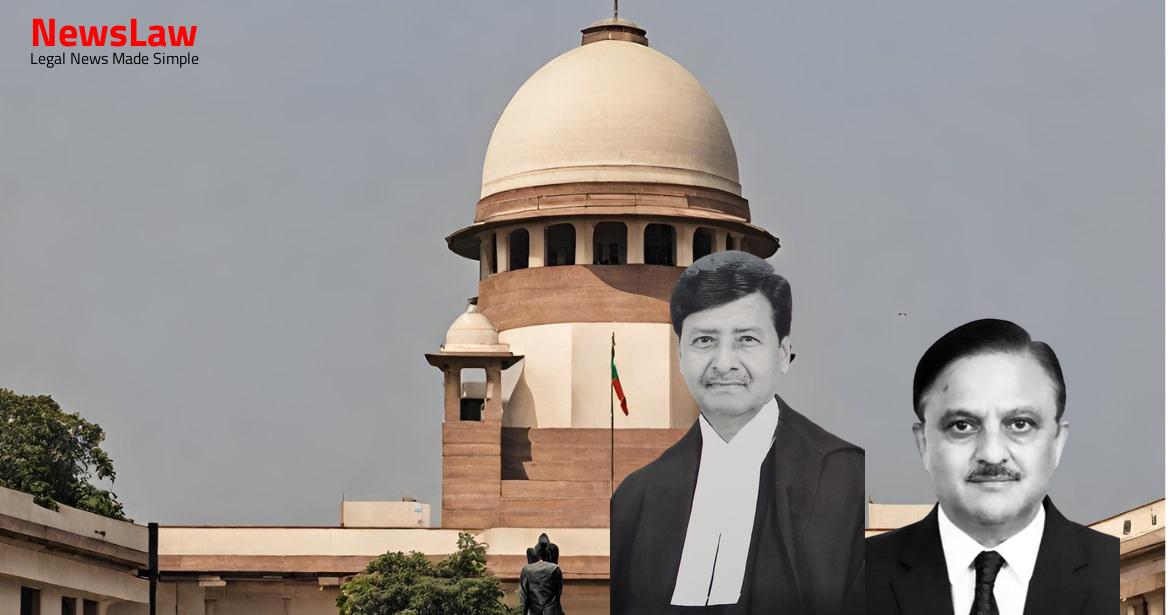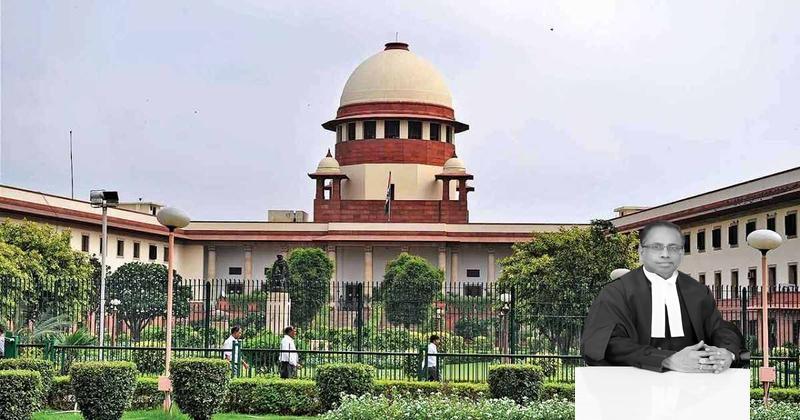Briefly the facts of the case available on record are that a writ petition was filed by Laxmi Narayan Das (dead) through LRs, Satynarayan Das, Birenchi Narayan Das (respondents herein) on 27.6.2008 challenging the order passed by the Settlement Officer in Settlement Appeal No 537/90
dated 01.03.1990.
It was further submitted that the observation was made by the authority in the order referred to in the writ petition that the petitioners can make representation to the GAD against the final record of rights, if so advised. Learned counsel for the State submitted that the record of rights in the case in hand was finalised way back in the year 1962. The expression ‘Raiyat’ is defined as an individual who acquires land primarily for purposes of cultivation under Section 3(3)(d) of the Orissa Government Land Settlement Act, 1962 and Section 2(26) of the Orissa Land Reforms Act, 1960. It was pleaded therein that 0.601 decimal of the land was in possession of the Reserve Bank of India (for short, ‘RBI’) where the staff quarters had been constructed. Thereafter, the respondents filed a writ petition before the High Court in 2008 praying for a direction to the respondents therein to record the land in the name of the writ petitioners, which was transferred to the Reserve Bank of India. Learned counsel for the appellant further argued that the writ petition was disposed of by the Single Bench while holding that there is no scope for interference in the order of Settlement Officer, and in case the petitioner has any grievance, he may take appropriate steps against the final record of rights which was prepared way back in the year 1962. The Division Bench of the High Court while granting relief to the respondents has indirectly set aside the record of rights which was prepared way back in the year 1962 without there being any challenge to the same in the writ petition. However, the learned Civil Judge had not referred to any reason as it had simpliciter permitted the respondents to withdraw the suit without permission to file afresh. He further submitted that the civil suit was filed with three prayers, firstly that the plaintiffs therein be declared owners of the portion of the land in their possession as they had become the owners thereof by way of adverse possession. Official notings were recorded at different levels wherein positive notes were prepared and opined that the respondents are entitled to allotment of land in lieu of the land belonging to the respondents which was allotted to the Reserve Bank of India. An appeal filed under Section 12-A of the 1958 Act, within thirty days of the order passed by the Assistant Settlement Officer under Section 12 of the 1958 Act is maintainable to the Settlement Officer. January 1990 Appeal was filed by the respondents before the Settlement Officer in terms of Section 12-A of the 1958 Act No such appeal was maintainable, after the publication of final record of rights, as the only remedy available was under Section 15(b) of the 1958 Act for filing an application before the Board of Revenue within one year from the date of final publication of record of rights, which was in the year 1962. June 2008 Writ Petition (C)
No 9069/2008 was filed by the respondents, challenging the allotment of land to Reserve Bank of India; claiming allotment of land equivalent to the land given to Reserve Bank of India; for regularising illegal possession of land with the plaintiffs in exchange of land allotted to Reserve Bank of India. 11.2008
Also Read: https://newslaw.in/supreme-court/retirement-age-of-pti-sports-officer-in-university/
The aforesaid Writ Petition was disposed of by the High Court The Order recorded that challenge therein was to the order passed by the Settlement Officer on 01.3.1990.
If those objections were not considered at the time of final publication of record of rights in terms of Section 12-B of the 1958 Act, the appropriate remedy was to file an application before the Board of Revenue within one year of the final publication of record of rights under Section 12-B of the 1958 Act. As the land was recorded in the name of Forest Department, notice was issued to the Forest Department. Even at the time of filing of the civil suit i.e., 13 years after the disposal of the appeal by the Settlement Officer and more than four decades after the record of rights was finalised, the respondents did not challenge the final record of rights. (b) Let it be declared that the plaintiffs are the lawful owner in possession having right title and interest over ‘A’ Schedule property and the Defendant, has no manner of right to interfere with the peaceful possession of the Plaintiffs not only over ‘A’ schedule property but also over ‘B’ schedule property. On the one hand, it was admitted in the plaint, that part of the suit land, which is allegedly belonging to the plaintiffs therein, had been allotted by the GAD to the Reserve Bank of India and staff quarters had been constructed thereon but still it was sought to be declared that the plaintiffs are owners in possession of that portion of land and their possession need to be protected.
The suit is withdrawn but no permission as sought for by the plaintiff to file fresh suit is allowed.” 19.
Rather simpliciter a case was sought to be made out on the basis of order dated 01.03.1990 passed in Settlement Appeal No 537/90 by the Settlement Officer. The Division Bench of High Court without appreciating any of the legal issues, the delay in filing the writ petition despite knowledge of the facts to the writ petitioners or their predecessors-in- interest, went on to disturb the final records of rights which were finalised way back in the year 1962.
State of Tamil Nadu, (1975) 1 SCC 152, it was laid down that a person aggrieved by an order of promoting a junior over his head should approach the court at least within six months or at the most a year of such promotion. Sri Shiv Charan Singh Bhandari and others, (2013) 12 SCC 179, this Court, while considering the issue regarding delay and laches observed that even if there is no period prescribed for filing the writ petition under Article 226 of the Constitution of India, yet it should be filed within a reasonable time. Balwant Regular Motor Service, Amravati and others, AIR 1969 SC 329, the Court referred to the principle that has been stated by Sir Barnes Peacock in Lindsay Petroleum Co. It has been further stated therein that if there is inordinate delay on the part of the petitioner in filing a petition and such delay is not satisfactorily explained, the High Court may decline to intervene and grant relief in the exercise of its writ jurisdiction. Emphasis was laid on the principle of delay and laches stating that resort to the extraordinary remedy under the writ jurisdiction at a belated stage is likely to cause confusion and public inconvenience and bring in injustice.
Zalpuri and others, (2015) 15 SCC 602, this Court considered the issue regarding delay and laches while initiating a dispute before the Court. A writ court while deciding a writ petition is required to remain alive to the nature of the claim and the unexplained delay on the part of the writ petitioner. Shyam Kishore Singh – (2020) 3 SCC 411, the issue regarding the delay and laches was considered by this Court while dismissing the petition filed belatedly, seeking change in the date of birth in the service record.
One can say that delay is the genus to which laches and acquiescence are species. Similarly, laches might be called a genus to a species by name acquiescence. It is neglect on the part of a party to do an act which law requires while asserting a right, and therefore, must stand in the way of the party getting relief or remedy. Therefore, it would be unjustifiable for a Court of Equity to confer a remedy on a party who knocks its doors when his acts would indicate a waiver of such a right. Nearly three decades after finalisation of record of rights, application was filed before the Settlement Officer, which was not maintainable after final record of rights is published. From the facts on record, it is evident, that the respondents had filed a civil suit in January 2003, claiming that the plaintiffs therein be declared owner of the land which is in their adverse possession since 1965 as mentioned in Schedule ‘A’, annexed to the plaint.
After withdrawal of the aforesaid suit, the writ petition was filed to call upon the respondents to show cause as to how the land owned by the writ petitioners was allotted to the Reserve Bank of India. On the question, as to whether after the withdrawal of a suit claiming the same relief without having permission to institute fresh one for the same relief, a writ petition will be maintainable before the Court, the guidance is available from the judgment of this Court in
Case Title: STATE OF ORISSA Vs. LAXMI NARAYAN DAS .(DEAD) THR. LRS. (2023 INSC 619)
Case Number: C.A. No.-008072-008072 / 2010



